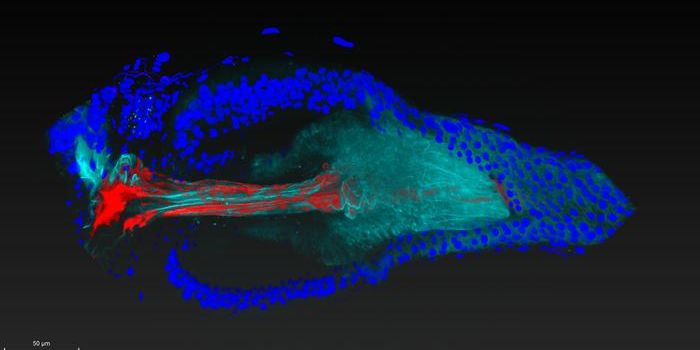Common Antibiotic Could be Effective Zika Treatment
Zika virus caused a devastating epidemic in 2015 that led to the birth of hundreds of children that had congenital brain defects. The virus is spread by mosquitoes, and while it is thought that many people have developed immunity to Zika, and it will not be able to spread easily anytime soon, it could pose a threat to new communities or people in the future that do not have immunity.
A team of scientists has been searching for a treatment for Zika virus. After screening over 10,000 compounds, they determined that a common antibiotic called methacycline could reduce some neurological complications in a mouse model (even though antibiotics are normally only effective against bacteria, in this instance, the antibiotic drug affects a viral molecule). They also found that other drugs, including one created as an Alzheimer's disease therapeutic, may also help fight Zika infections.
"Around the world, the Zika outbreak produced devastating, long-term neurological problems for many children and their families. Although the infections are down, the threat remains," said Avindra Nath, M.D., a senior investigator at the NIH's National Institute of Neurological Disorders and Stroke (NINDS) and a senior author of this work, published in PNAS. "We hope these promising results are a good first step to preparing the world for combating the next potential outbreak."
The Zika virus has a genome made of RNA that is encapsulated in a protein shell. When the virus infects a cell, it dumps its RNA genome inside, and the host cell begins to use it to make proteins including the NS2B-NS3 viral protease, which snips a larger viral protein into smaller components. This enzyme is crucial for the assembly of new viral particles that would be made in a host cell and then released to infect other cells.
In this study, researchers searched for a drug that could disable the function of the NS2B-NS3 Zika virus protease, which would theoretically prevent the virus from reproducing.
"Proteases act like scissors. Blocking protease activity is an effective strategy for counteracting many viruses," said study leader Rachel Abrams, Ph.D., an organic chemist in Dr. Nath's lab. "We wanted to look as far and wide as possible for drugs that could prevent the protease from snipping the Zika virus polyprotein into its active pieces."
Large screens identified a few compounds like methacycline, that may be effective at blocking the protease. There are other candidates as well including an anti-inflammatory drug called MK-591, and failed Alzheimer's drug JNJ-404.
When the researchers tested these compounds in a cell culture model of Zika infection, it suggested that all three could reduce the level of infection.
In pregnant mice modeling Zika infection, methacycline treatment improved balance and coordination in offspring compared to placebo. An examination of the brains suggested that there was less neural damage. Unfortunately, the virus did still cause some problems.
"These results suggest that tetracycline-based antibiotics may at least be effective at preventing the neurological problems associated with Zika virus infections," said Dr. Abrams. "Given that they are widely used, we hope that we can rapidly test their potential in clinical trials."
Sources: AAAS/Eurekalert! via NIH/National Institute of Neurological Disorders and Stroke, Proceedings of the National Academy of Sciences (PNAS)









